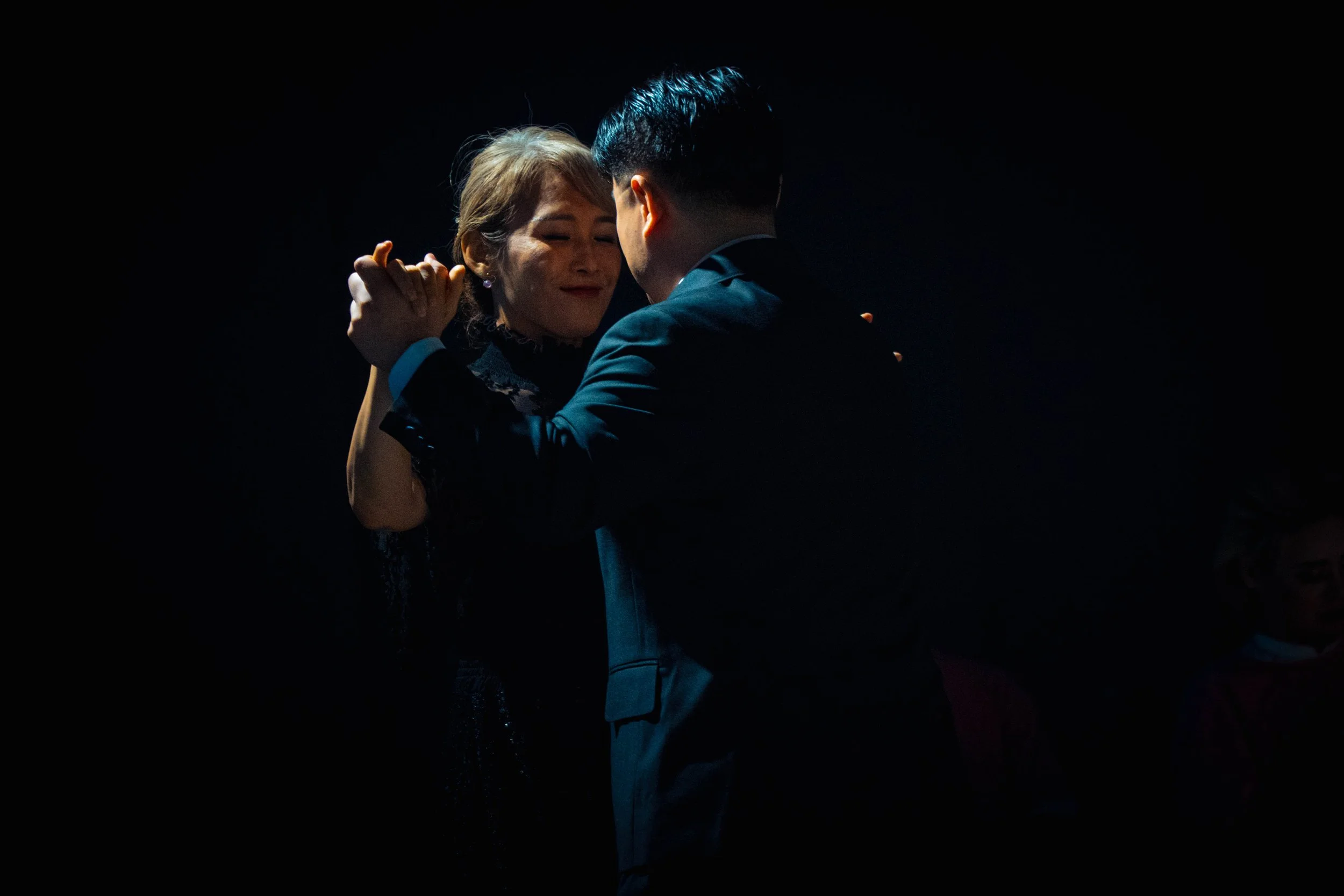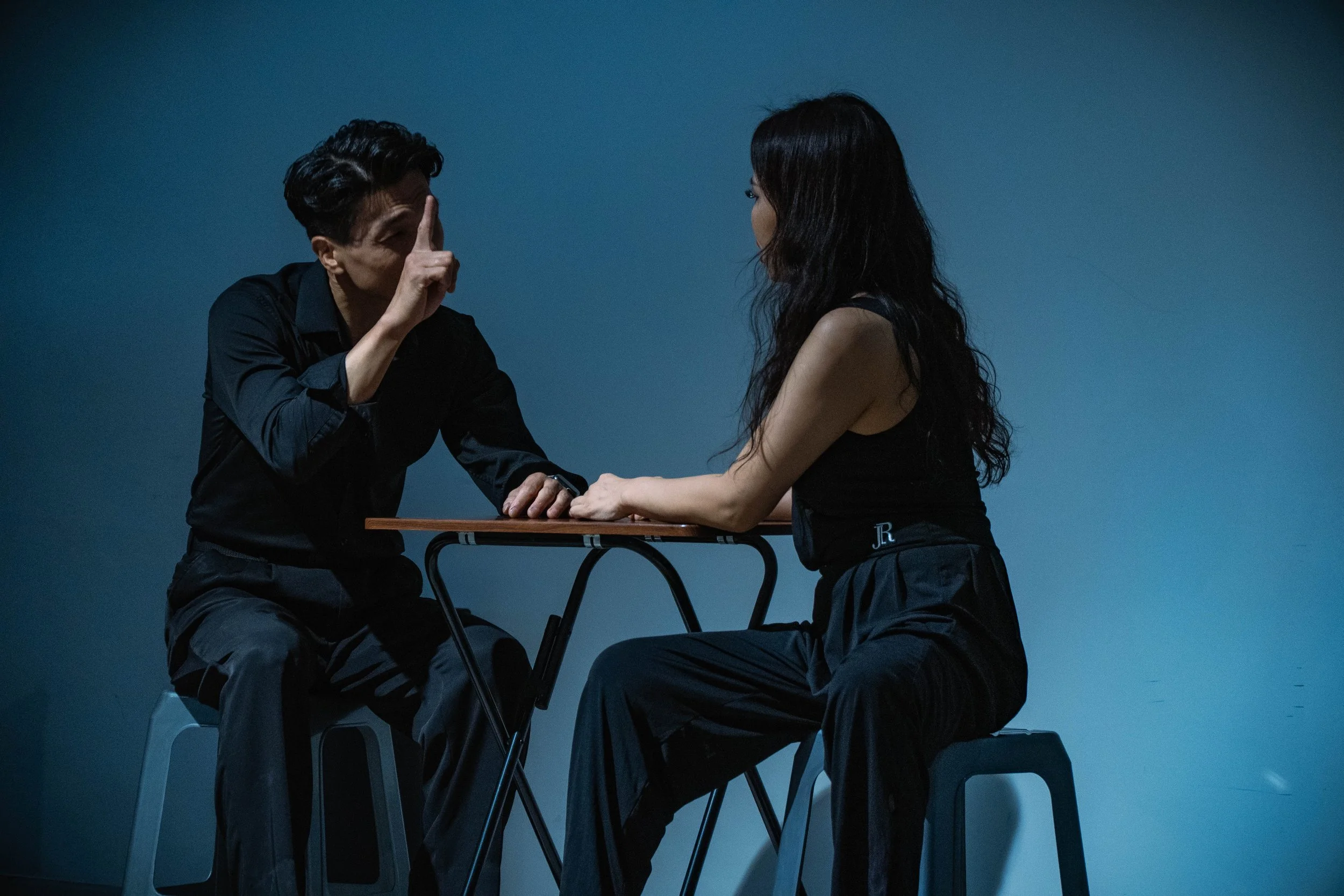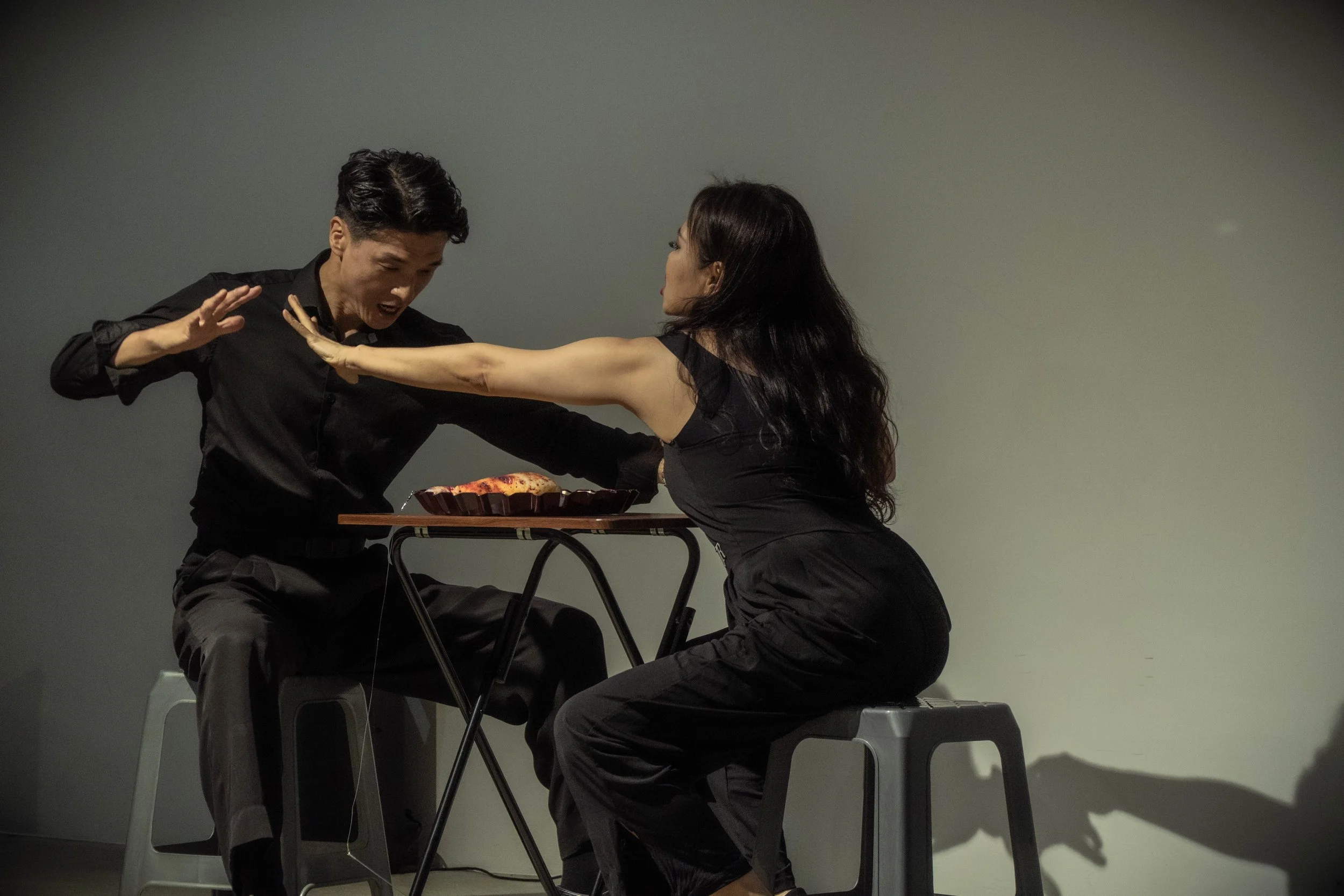
Just a dance?
perhaps something more.






Not your typical internship
I was supposed to just watch, maybe translate. That was the agreement when I interned for the Seoul Fringe Festival: sit in the corner, take notes, keep it clean. But when the tango group started, I couldn’t stay still. My camera was out before I realized, trying to hold onto something that felt like it would vanish if I blinked.
From the outside, it’s easy, maybe even a little predictable: just dancers. Strangers moving in step, arms locked, shoes scraping the floor. But if you sit with it, the cracks open up. The embrace lasts longer than etiquette. The gaze lingers past politeness. In a country that trains us to look away, that alone feels like rebellion.
The photos tell it better. An umbrella overhead, absurd and tender. A skirt flaring mid-air, balance caught between strength and collapse. A pink shirt, a beer bottle, laughter leaking out where it shouldn’t. A loaf of bread slammed into theater, turning dinner into duel. Every scene doubles back on itself: a dance for the crowd, a commentary for anyone willing to look deeper.
The umbrella dance stuck with me because it didn’t make sense. No rain, no storm, but just two bodies shielding themselves anyway. In Seoul, umbrellas are practical, almost militarized: rows of black nylon popping open as soon as the first drops fall, a collective march toward dryness. But here, a bright yellow umbrella unfolds in the dark, reflecting the spotlights to the dark, dull seats for the audience. The color and design is almost childish, but it was a prop for intimacy in a place that didnt make much room for it.
The bread was hot; violent, theatrical. Two people at a table, a loaf between them like a peace offering, then suddenly it’s a weapon. In a city where dinners are often quiet negotiations–job interviews disguised as meals, family tensions buried under banchan–this was something else. The slam of bread said what people usually swallow or were too afraid to say out loud.
There were subway moments too. Dancers moving on invisible trains, bodies jolting with the rhythm of a commute everyone here knows too well. The stage became a stand-in for rush hour: strangers pressed together, shoulders brushing, eyes darting anywhere but each other’s. First time watching it, felt just choreography. But the second time, fourth, tenth, I finally realized it was critique–of how we’re trained to share space without ever really touching. Of how we always confine ourself to small boxes even when the space to express ourself is boundless.
That’s what hooked me. To strangers passing by, this was nothing more than tango. To me, it looked like confession. An uncomfortable reminder that even in Seoul, where silence is safer than saying what you want, people still find ways to speak–just not with words.